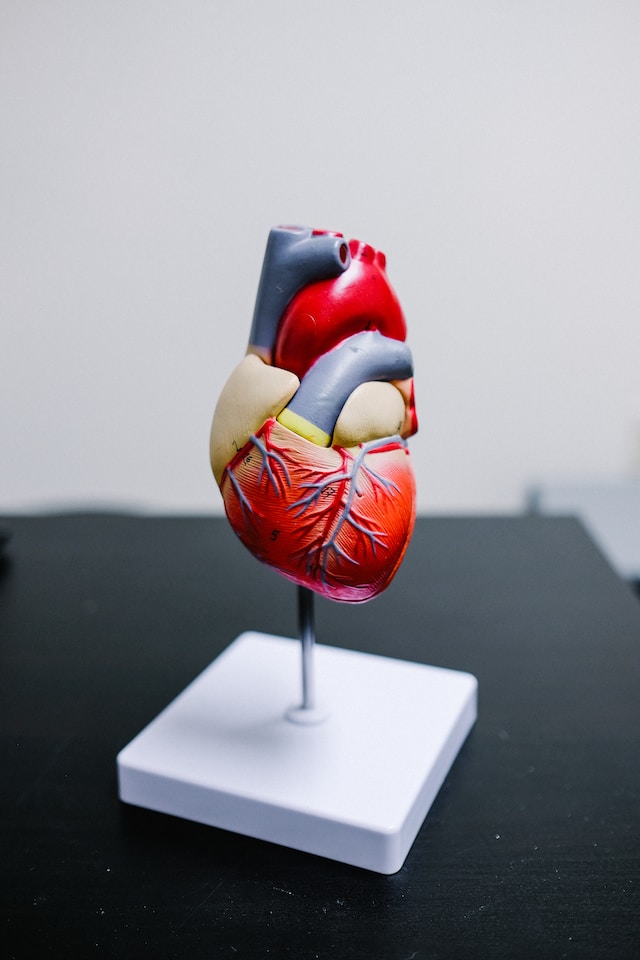
When your heart works properly, the rest of your body can function as it should. Taking care of your heart can increase longevity and reduce your risk of developing heart disease and other serious health problems. Below is a compiled list of six ways you can better care for your heart.
1. Make Healthy Food Choices
Some who follow a cardiac diet have a lowered likelihood of developing heart disease. Choose low-fat, cholesterol-free, sodium-free, and added sugar-free foods to stay slim. Consume vegetables, carrots, whole grains, lean meats, and healthy fats like nuts, seed pods, and fatty fish.
2. Exercise Regularly
The health of your heart can be improved by regular physical activity. Aerobic activity, such as brisk walking or cycling, should be performed at a moderate intensity for at least 150 minutes per week. Incorporating strength training exercises can also help improve your heart health by increasing your muscle mass and lowering your blood pressure.
3. Control Your Anxiety
It’s important to find effective methods of dealing with stress because of its negative effects on your heart health if left unchecked. If you need to relax, try some gentle stretching, meditation, or deep breathing. Do things that make you happy and calm down, like reading, listening to songs, or going for a walk in the park. Do check out hospice care providers.
4. Stop Smoking
Quitting smoking is one of the best things you can do for your heart health because it reduces your risk of developing cardiovascular disease. Consult your doctor or a local support group if you need assistance kicking the habit.
5. Get Enough Sleep
Sleep is crucial when it comes to keeping your heart healthy, and you should try to get between seven and nine hours of sleep every night. Caffeine and alcohol should be avoided several hours before bedtime, and the bedroom should be kept cool, quiet, and dark.
6. Monitor and Manage Your Blood Pressure
Maintaining cardiovascular health requires constant vigilance in monitoring and controlling blood pressure. To better protect your heart, consider the following advice on keeping tabs on and controlling your blood pressure:
Constantly Check In
Keep your heart healthy by having your blood pressure checked regularly. You can use a blood pressure monitor at home or see a doctor regularly to keep tabs on your blood pressure.
Make the Necessary Modifications to Your Life
Modifying one’s way of life can aid in controlling hypertension and maintaining cardiovascular health. These include a heart-healthy diet, regular exercise, not smoking, moderate alcohol consumption, and stress management.
Take Medication
If you’ve been diagnosed with high blood pressure and have tried making healthy lifestyle changes without success, your doctor may recommend medication or some alternative antioxidants. For example, with your doctor’s approval, you may find some CoQ10 for sale, as CoQ10 can lower blood pressure. However, you should only take your medication exactly as prescribed and report any adverse effects to your doctor.
Keep Follow-Up Appointments
Follow-up visits with your doctor to check your blood pressure and make necessary adjustments to your treatment plan are essential. If you have any questions or concerns about your heart health or blood pressure, it’s important to talk to your doctor.
The Part Your Genes Play in Your Heart Health
Heart diseases can run in families, but there are steps you can take to reduce your chances of developing the condition. Provided below are some guidelines for learning about your family’s genetic risk for heart disease and taking appropriate action to lower it:
Genetics and Heart Disease: A Clearer Picture
There is a genetic predisposition and environmental influences that can contribute to the development of heart disease. Genetics, and environmental and behavioral factors like diet, exercise, smoking, and stress affect the risk of developing heart disease.
Family History and Screening
If heart disease runs in your family, consult your doctor about screening and monitoring your cholesterol and blood pressure levels. In some cases, genetic testing may be suggested to discover hereditary predispositions.
Treatments and Operations
The risk of cardiovascular disease can be reduced through certain medications and surgical procedures. Treatments for cardiovascular disease include medications to lower cholesterol and surgical procedures like angioplasty and bypass surgery to increase blood flow to the heart, among others.
Having Regular Checkups
Regular checkups with your healthcare professional are important for monitoring heart health and managing risk factors.
Conclusion
Remember to talk to your healthcare professional about any concerns or questions about your heart health, and follow any recommended screening or treatment plans. It is possible for you to improve your cardiovascular health and lead a more fulfilling, long life.
